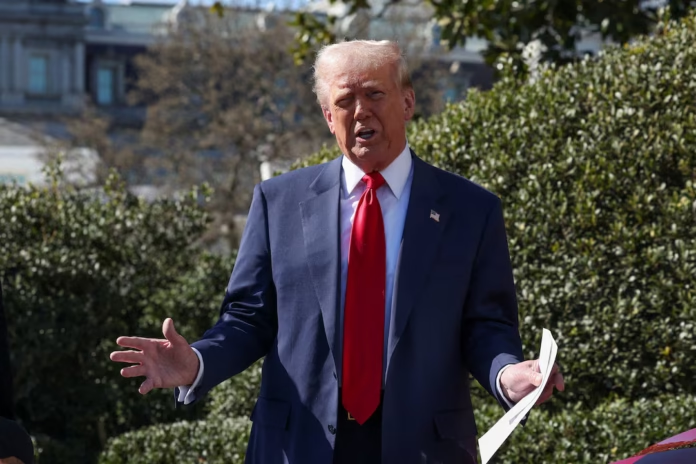A federal judge has temporarily blocked President Donald Trump’s effort to use the Alien Enemies Act of 1798 to deport suspected members of a Venezuelan gang, Tren de Aragua, which the administration accuses of “unlawfully infiltrating” the United States. The ruling, issued by Chief Judge James E. Boasberg of the D.C. District Court, also mandates that any deportation flights carrying individuals subject to Trump’s proclamation must return to the U.S.
On Saturday, Trump invoked the rarely used wartime authority, alleging that Tren de Aragua, a Venezuelan gang, had infiltrated the regime of Venezuelan President Nicolás Maduro, including its military and law enforcement, and was engaging in “irregular warfare” and drug trafficking within the U.S. The proclamation targeted Venezuelan citizens aged 14 and older who are members of the gang and are not naturalized or lawful permanent residents.
Hours before the White House published Trump’s proclamation, the American Civil Liberties Union (ACLU) and Democracy Forward filed a lawsuit challenging the administration’s plans to deport five Venezuelan men under the Alien Enemies Act. Judge Boasberg initially issued a temporary restraining order preventing the deportation of the five individuals for at least 14 days. On Saturday, he expanded the order to cover “all non-citizens in U.S. custody” subject to Trump’s proclamation.
The Justice Department quickly appealed the decision, but the judge’s ruling remains in effect for now. The expanded order applies to all Venezuelan citizens in U.S. custody who are members of Tren de Aragua and are not legal residents. It also requires any deportation flights in the air to return to the U.S. “Those people need to be returned to the United States,” Boasberg said during the hearing.
The ruling does not apply to individuals who have already been ordered deported for reasons unrelated to Trump’s proclamation or those who have already landed in a foreign country. Once individuals disembark in another country, they fall outside the court’s jurisdiction.
Skye Perryman, president of Democracy Forward, hailed the ruling as a victory for the rule of law. “Today was a horrific day in the history of the nation, when the President publicized that he was seeking to invoke extraordinary wartime powers in the absence of a war or invasion and claiming virtually unlimited authority to remove people from the country,” Perryman said. “But, tonight the rule of law prevailed. The government has been forced to turn planes around, and our lawsuit — filed in the very early hours this morning — has resulted in broad relief.”
During the hearing, Justice Department lawyers assured the judge that the five Venezuelans named in the lawsuit were not on deportation flights. However, attorneys for the ACLU and Democracy Forward informed the court that they were aware of flights carrying other Venezuelans that had departed from Texas, bound for Honduras and El Salvador. Judge Boasberg warned the government to ensure compliance with the court’s order, emphasizing the dire conditions awaiting deportees in foreign prisons. “These folks are going to be sent to Salvadorian and Honduran prisons, which are not going to be terribly receptive to Venezuelans,” he said.
The Alien Enemies Act, enacted in 1798, grants the president broad powers to detain, restrain, or deport non-citizens from countries deemed hostile during times of war or invasion. Critics argue that Trump’s use of the act in this context is an overreach, as the U.S. is not at war with Venezuela. The case highlights ongoing tensions over immigration policy and the limits of executive power.
For more political updates and analysis, visit DC Brief.


